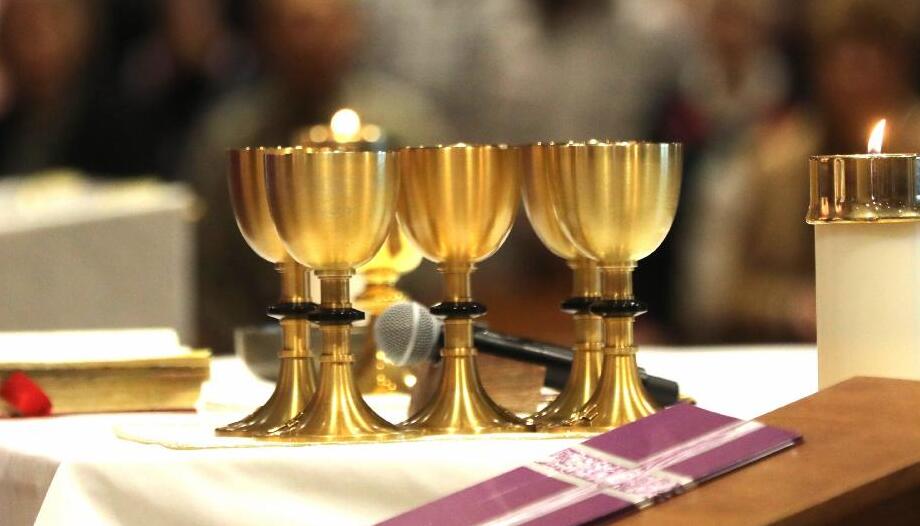- Jenna Marie Cooper, canonist and consecrated virgin
P.: I recently read your answer to the question, "Is non-alcoholic church wine valid for consecration?". In your answer you quoted Canon Law which speaks of 'valid matter' for the celebration of the Eucharist. This quickly brought to mind my wife's severe celiac disorder.
My question is: Is it absolutely essential to use wheat as a component for the celebration of the Eucharist? She has been told that there must be a wheat component and has been offered a 'low gluten host' instead of the regular host. We are a bit confused as to why a 'completely gluten-free host' cannot be offered. Surely Jesus would not have proposed something as important as this, which would make his followers sick?
Different ways to receive Holy Communion
R.It is true that real wheat must be used in a valid celebration of the Eucharist, but there are different ways to receive Holy Communion, even as a Catholic with a severe gluten intolerance.
Canon 924 of the Code of Canon Law deals with the valid matter - that is, the physical 'matter' necessary for a sacrament to 'function' - for both species of the Eucharist. With regard to the bread that is to become the body of Christ, the canon tells us that "the bread must be of wheat only, and freshly made, so that there is no danger of corruption (i.e., decay)."
Since Eucharistic bread must be made from wheat, and since wheat contains primarily gluten, it does not seem possible to have a completely gluten-free Eucharistic Bread. Most of the time, when we see truly gluten-free bread products in other non-sacramental contexts, these breads are made from some grain such as rice or corn that naturally do not contain gluten. Since these grains are not wheat, they cannot be used.
Cardinal Ratzinger's clarifications
Similarly, if there were a way to remove all gluten from a wheat product, it would be questionable whether it would still be 'wheat' in any meaningful sense. This is most likely the reasoning reflected in the 2003 letter of the then Cardinal Joseph Ratzinger (later to become Pope Benedict XVI) of the Congregation for the Doctrine of the Faith when he states: "Hosts completely free of gluten are not valid matter for the celebration of the Eucharist".
However, this same letter goes on to state that: "Low gluten hosts (partially gluten-free) are valid matter, provided that they contain a sufficient quantity of gluten to obtain the confection of bread without the addition of foreign matter and without the use of procedures that alter the nature of the bread".
Receiving Communion from the chalice
There are companies that produce ultra-low gluten hosts that many celiac Catholics can tolerate. But even those celiacs who cannot take even a trace of gluten can receive Holy Communion from the chalice. As the aforementioned letter of 2003 tells us: "A lay person affected by celiac disease, who is unable to receive communion under the species of bread, including hosts with low gluten content, may receive communion only under the species of wine".
Here it is good to point out that we, as Catholics, believe in the doctrine of concomitance, which means that Jesus is fully present - body, blood, soul and divinity - in either of the two Eucharistic species. This means that a Catholic is not receiving 'less Jesus' if, for example, he can only receive Him from the chalice.
The sacraments, gifts of God
That said, I understand that these rules and distinctions may seem somewhat nitpicky and even a bit out of character for the Jesus we know from the Gospels as generous and understanding. But I think this is part of the great mystery of the sacraments in general.
That is, as a Church we have received the sacraments as gifts from God "as is". We can use what we know for sure to discern the parameters of what is valid and appropriate in their celebration, but we cannot edit them according to our own ideas of what would be best. You may send your questions to CatholicQA@osv.com.








